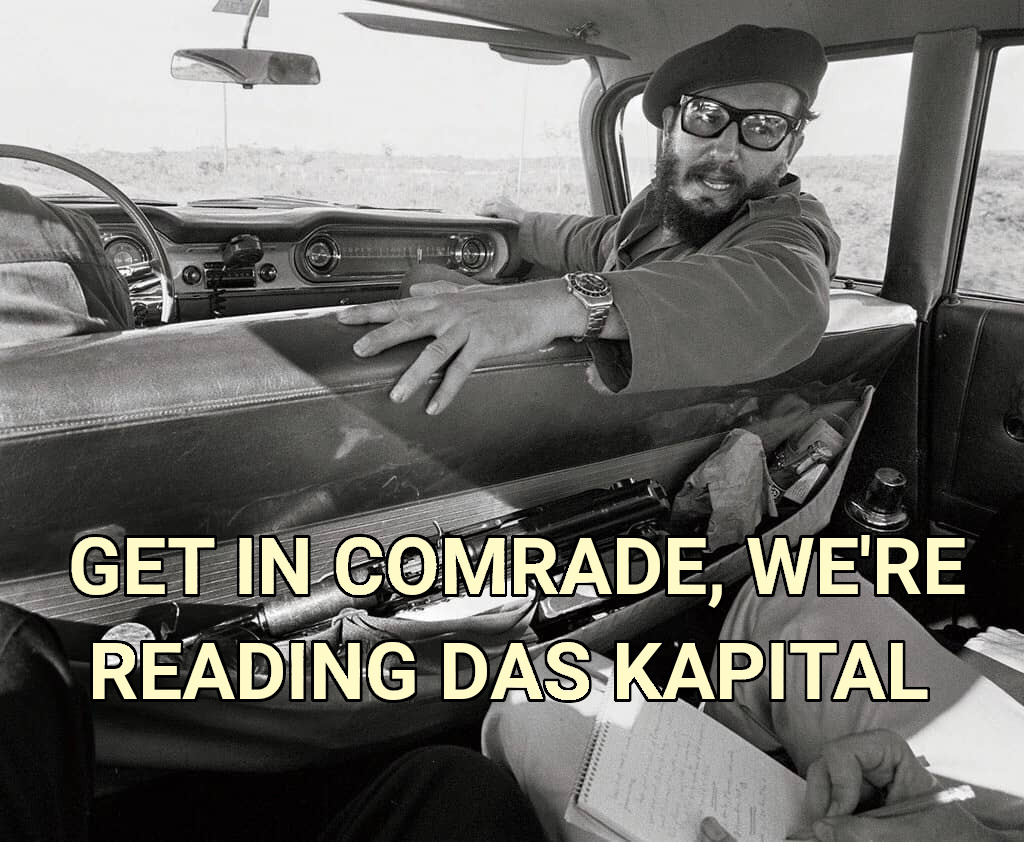this post was submitted on 01 Jan 2024
49 points (100.0% liked)
theory
409 readers
19 users here now
A community for in-depth discussion of books, posts that are better suited for [email protected] will be removed.
The hexbear rules against sectarian posts or comments will be strictly enforced here.
founded 1 year ago
MODERATORS
you are viewing a single comment's thread
view the rest of the comments
view the rest of the comments

At risk of spamming this thread (I have work tomorrow so getting my thoughts out now) I wanted to pose a starter question just to get some discussion flowing.
What are use-value and exchange-value? Why does Marx highlight these two things and their relationship in the first chapter?
Use-value is the value of an object in the eyes of the consumer, the actual value that it provides when it is used. The use-value of an apple -> it nurtures your body.
Exchange-value is the quantifiable value of an object in an exchange. How does the value apple measure against an orange? The exchange-value of an apple -> the number of socially necessary labor time to produce it (according to the labor theory of value).
Nice. So use-value relates to use, and exchange-value relates to exchange. That's a good starting point, but still seems a bit murky ... both definitions refer to "value" but in seemingly different meaning... can you explain that difference in meaning?
I think these two paragraphs give an initial description of the two, although Marx indicates it is incomplete:
Use-value vs. exchange-value
Two things that jump out at me:
As a side note, we could extend this and say that something can gain a use-value as part of a historical process, right? For example, on the first page:
The magnet never changed, but through scientific development became useful.
Yeah very much so.
For example a lotta the aim of "production" in consumer societies as we have in the core is to make basically anything gain more use-values so there's more opportunities to sell stuff and more possibilities to get higher prices from induced scarcity.
This ties into Marx's point ofc about stuff needing to be an object of utility to have value. Much as, if something is no longer useful it is no longer valuable, if something is suddenly useful it is suddenly valuable.